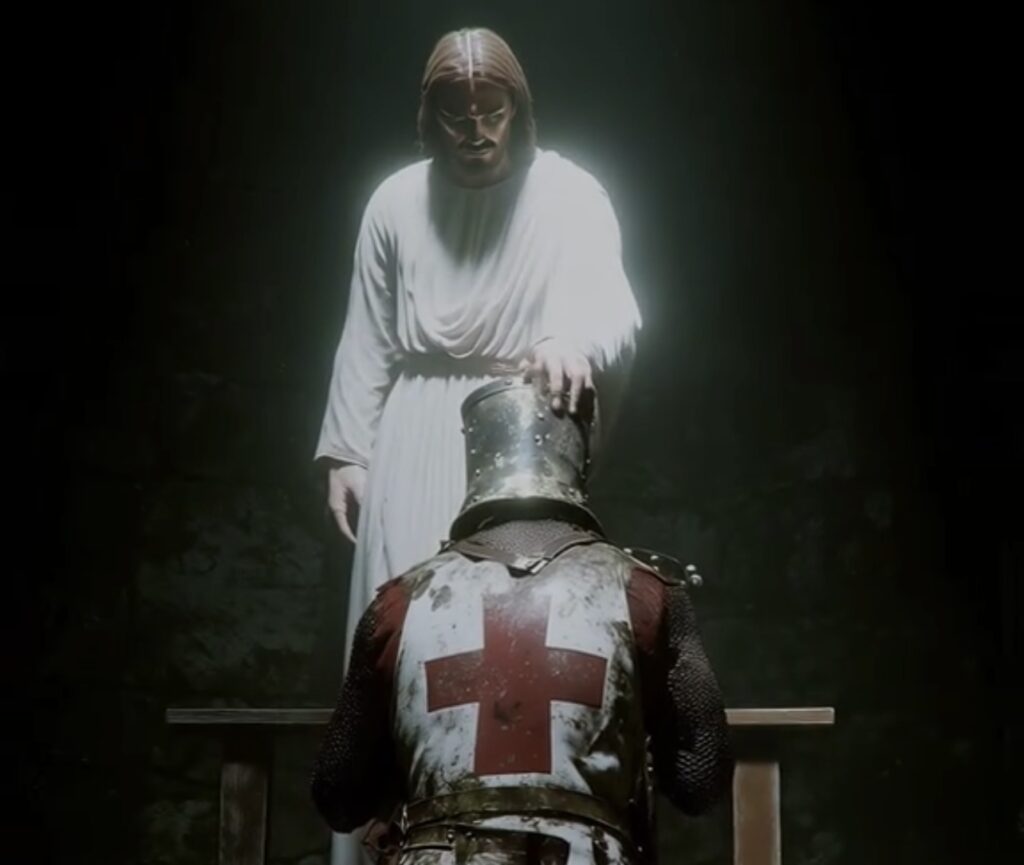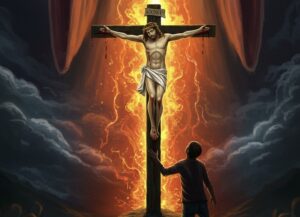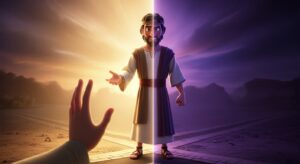The Full Picture: Salvation, Judgment, and the Believer
Understanding the relationship between the body, soul, and spirit, and how they relate to judgment, reveals the profound security we have in Christ. Your outline provides an excellent framework for this truth, and we can enhance it by adding further biblical context.
1. The Components of a Person
Body: Formed from the earth and designed for this physical world. At death, it returns to the ground.
Genesis 3:19: “By the sweat of your face you shall eat bread, till you return to the ground, for out of it you were taken; for you are dust, and to dust you shall return.”
Spirit: The eternal part of you, a gift from God. It is your point of connection to Him.
Ecclesiastes 12:7: “and the dust returns to the earth as it was, and the spirit returns to God who gave it.”
Soul: Your individual identity—your mind, will, and emotions. This is the “you” that makes decisions, feels, and thinks.
At the moment of death, the body, soul, and spirit separate. The body returns to dust, while the spirit returns to God. The soul then awaits its final destiny, which is determined by whether the person is “in Christ.”
2. The Judgment of the Unsaved
For those who die without Christ, their sins have not been atoned for. The judgment they face is the Great White Throne Judgment, a final and terrifying reckoning for all who have rejected God’s grace. This judgment is based on their works, and since no human work can measure up to God’s standard of perfect righteousness, the outcome is separation from God.
Hebrews 9:27: “And just as it is appointed for man to die once, and after that comes judgment,”
Revelation 20:12: “And I saw the dead, great and small, standing before the throne, and books were opened. Also another book was opened, which is the book of life. And the dead were judged according to their works, as recorded in the books.”
The result of this judgment is eternal separation from God, often described as the “second death.”
3. The Judgment of the Saved
If you are in Christ, your destiny is completely different. The judgment for your sin has already occurred.
The Cross: Jesus took the full judgment for your sin on the cross, becoming the ultimate sacrifice.
Isaiah 53:5-6: “But he was pierced for our transgressions; he was crushed for our iniquities; upon him was the chastisement that brought us peace, and with his wounds we are healed. All we like sheep have gone astray; we have turned—every one—to his own way; and the Lord has laid on him the iniquity of us all.”
No Condemnation: Because of this, believers will never face the Great White Throne Judgment. Instead, you “have passed from death to life.”
John 5:24: “Truly, truly, I say to you, whoever hears my word and believes him who sent me has eternal life. He does not come into judgment, but has passed from death to life.”
Romans 8:1: “There is therefore now no condemnation for those who are in Christ Jesus,”
Hebrews 10:17: “I will remember their sins and their lawless deeds no more.”
Instead of a judgment for sin, believers will stand before the Judgment Seat of Christ (bema seat in Greek). This is not for condemnation but for the evaluation of our works and motivations as believers. It’s a time for rewards.
2 Corinthians 5:10: “For we must all appear before the judgment seat of Christ, so that each one may receive what is due for what he has done in the body, whether good or evil.”
Believers will not be judged for sin (because that was finished at the cross, John 5:24).
Instead, this judgment is about rewards for what we did with our lives in Christ (1 Cor. 3:12–15).
4. The Final Resurrection
Your summary beautifully captures the end of this journey for the believer. At the resurrection, your soul and spirit will be reunited with a new, glorified body.
1 Corinthians 15:52-53: “in a moment, in the twinkling of an eye, at the last trumpet. For the trumpet will sound, and the dead will be raised imperishable, and we shall be changed. For this perishable body must put on the imperishable, and this mortal body must put on immortality.”
This truth brings immense hope. Because of what Jesus accomplished, your final destination is not a judgment for sin, but a celebration of your faith and an eternal life with Him in a new, perfect body.
A Tale of One Reality: The Faith of All Who Believe
The Bible is clear: “none is righteous, no, not one” (Romans 3:10). King David, the “man after God’s own heart,” was also a man who committed adultery and murder. So, how could we ever expect to see him in heaven? The answer lies in the unchanging nature of Jesus Christ. “Jesus Christ is the same yesterday, today, and forever” (Hebrews 13:8).
This means His redemptive power is not limited by time. The blood He shed on the cross wasn’t just for us—it was for everyone who ever trusted in God’s promise. This truth is perfectly illustrated by the lives of the great heroes of faith.
The apostle Paul, in his letter to the Romans, uses David and Abraham as prime examples of this truth. He quotes from Psalm 32, where David rejoices in God’s forgiveness:
Romans 4:6–8: “Just as David also speaks of the blessing of the one to whom God counts righteousness apart from works: ‘Blessed are those whose lawless deeds are forgiven, and whose sins are covered; blessed is the man against whom the Lord will not count his sin.'”
And Paul goes even further back, to Abraham, the father of all who believe:
Romans 4:3: “For what does the Scripture say? ‘Abraham believed God, and it was credited to him as righteousness.'”
Abraham, David, and all the heroes of the Old Testament were not saved because they were perfect. They were saved because they believed God’s promises, which ultimately pointed to the coming Savior. As the author of Hebrews confirms, they all “died in faith, not having received the things promised, but having seen them and greeted them from afar” (Hebrews 11:13).
This timeless principle of salvation by faith is brought to its most dramatic conclusion in the very moment of Jesus’ death, with the thief on the cross.
Here was a man, a criminal, who had no time for good works, baptism, or church membership. He had nothing to offer but his dying breath. Yet, in that moment, he saw Jesus, a man suffering unjustly, and he saw a King with a coming kingdom. With a simple, desperate plea, he placed all his trust in Christ.
Luke 23:42–43: “Then he said, ‘Jesus, remember me when you come into your kingdom.’ And he said to him, ‘Truly, I say to you, today you will be with me in paradise.'”
The thief was saved by the same principle as Abraham and David: by grace through faith. He looked at the Christ who was dying beside him, and that simple, unadorned faith was enough.
Therefore, the one reality is this: all who are saved are saved in the exact same way. They looked forward to the sacrifice, we look back at it. The object of our faith is the same, and the result is eternal life with Him. The story of the thief on the cross proves that it’s never too late to come to the cross, and that nothing but faith is required
Is same mercy we have on earth we have in heaven






